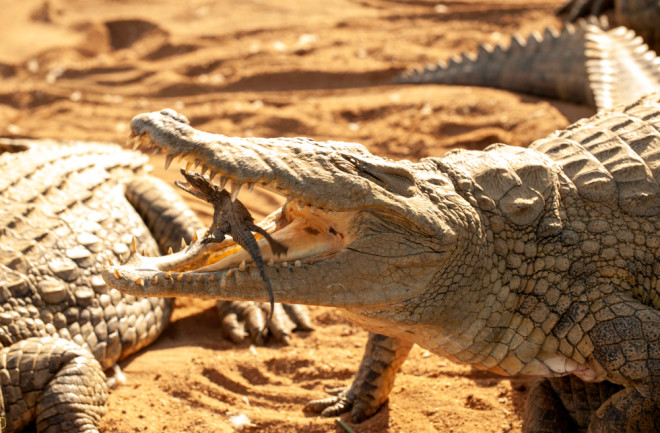This article was originally published on Oct. 22, 2021.
Crocodiles are stealthy hunters. When prey approaches, they stay submerged until the last moment, then launch their huge, muscular bodies out of the water with astonishing speed to grab their prey. At this moment, they use their sharp teeth to chomp down with tremendous force — ranging from 20,000- 350,000 pounds per square inch. It’s no wonder crocodiles stalk people’s nightmares.

